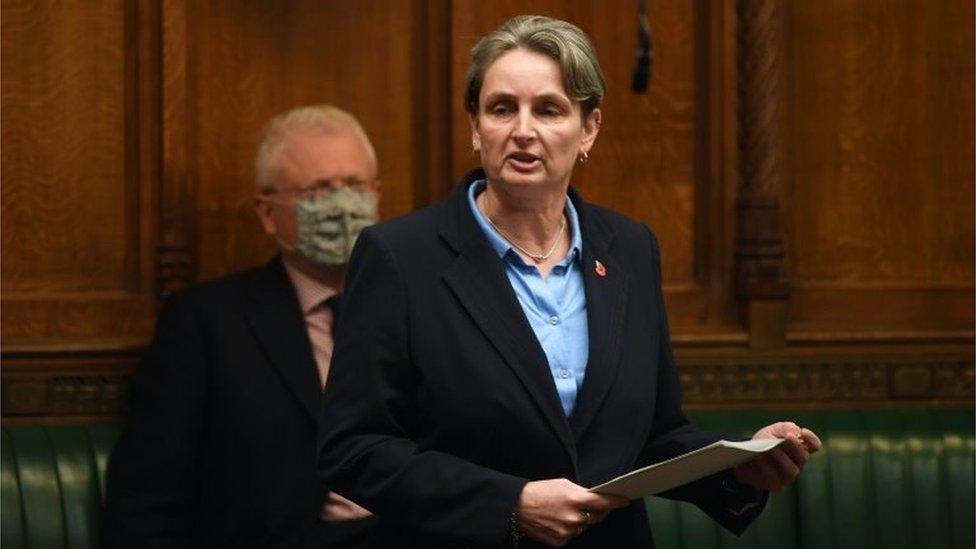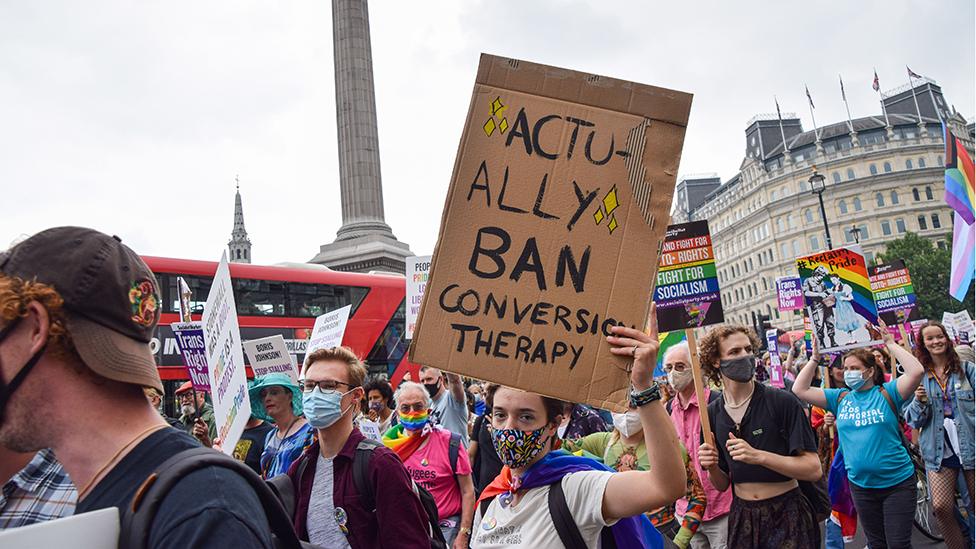Oxford Pride condemns conversion therapy open letter
- Published

Oxford Pride said it was "disgusted and disappointed" by the letter
Church leaders and an LGBT charity from Oxfordshire have condemned a letter signed by Christian ministers opposing a ban on conversion therapy.
The letter to Equalities Minister Liz Truss was written in response to a consultation on outlawing the "potentially harmful" practice.
It is signed by 2,500 ministers and pastoral workers, and says banning it would breach their legal rights.
But Oxford Pride said it was "disgusted and disappointed" by the letter.
According to NHS England, conversion therapy tries to change someone's sexual orientation or gender identity.
It warns that all forms of the practice are "unethical and potentially harmful".
In October, the government opened a public consultation on its plans, external to make administering "talking therapy" for under-18s or non-consenting adults illegal.
The letter describes conversion therapy as a category "so broad as to be essentially meaningless" and legislation to ban it "strongly risks" criminalising ministers.
The authors of the letter also published another document with more detailed analysis of the proposals - though they were clear that it represented "the thinking of the authors. Other signatories of the letter may not agree with everything."
The document said they "do not consider that there is a particular defect or deficiency those who identify as LGBT have which others do not", adding, "the whole of human nature is defective and deficient according to the Christian doctrine of original sin. We consider all sexual sins, including but not limited to those associated with LGBT lifestyles, to be sinful, and Christians are called by God to turn away from them."
In response Oxford Pride said, external: "Of this letter, 18 ministers are from Oxford churches. Six of which are from St. Ebbe's Church.
"We do not believe that these signatories act in a loving, or indeed Christian way.
The authors "believe we are 'defects', and they would have us go through harm to change ourselves."
'Unacceptable'
The Bishop of Dorchester, the Rt Revd Gavin Collins, who is responsible for 326 churches in the Diocese of Oxford, said: "The letter has undoubtedly upset a lot of people.
"It puts out a message that people aren't safe or welcome in our churches, and it cuts across the settled view of the Church of England that coercive conversion therapy is unacceptable and should be banned.
"I am disappointed that the authors have used an open letter to diminish people who are in faithful same sex relationships and those who are transgender."
He added: "I am clear that we are all made in God's image, that all are welcome in His church and that everyone has a place at the table."
Jayne Ozanne, a member of the General Synod and chair of the Ban Conversion Therapy Coalition, wrote in her blog, external that the letter had a "self-dramatising and intransigent attitude" which hampered the sharing of the Gospel.
Ms Ozanne, who herself was subjected to the practice, added: "It is precisely because these Christian leaders think that what they do is both loving and acceptable that we need this legislation in the first place."
In 2017 The Church of England agreed conversion therapy had "no place in the modern world, is unethical, potentially harmful and not supported by evidence".
The BBC has approached several signatories for comment.
In a statement St Ebbe's said: "Those who read the full text of the letter will know that its signatories are certainly not supporting conversion therapy.
"They are rather expressing widespread concerns that, without further clarification, the proposed legislation could unintentionally end up criminalising key aspects of mainstream Christian belief and ministry.
"We wholeheartedly affirm the immense dignity of all people, without exception, as made in God's image."
Update: This article has been amended to make it more clear that comments were made both about the open letter and about the supporting document by the authors.

Follow BBC South on Facebook, external, Twitter, external, or Instagram, external. Send your story ideas to south.newsonline@bbc.co.uk, external.
Related topics
- Published25 November 2021

- Published5 August 2021

- Published20 September 2024
